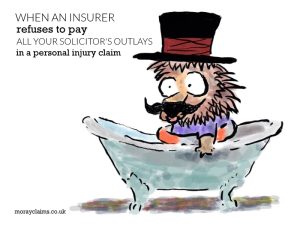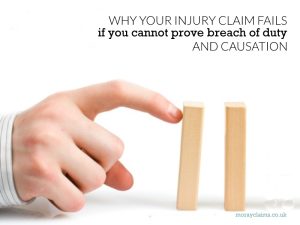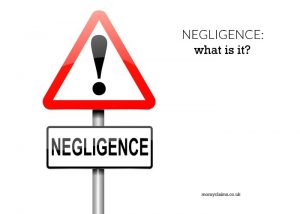Sometimes an insurer or loss adjuster's behaviour is so unacceptable – and they will not apparently listen to any reasoning – that the only way you can have a chance of getting their attention is to call them out publicly for their behaviour. This article is about a situation we have encountered with insurers and loss adjusters where they will not give us sufficient information in relation to a claim – in which they are denying liability - to enable us to advise our client whether or not the denial of liability is reasonable. We investigate many potential claims where the evidence the opponent produces shows that the claim's chances of success are poor. It is to be expected that not all personal injury compensation claims can be successful. No solicitor will mind that, provided the opponent provides the solicitor with sufficient evidence for the solicitor to be able to understand the denial of liability and explain it to you, as the injured client. In cases which involve Continue Reading
When an insurer refuses to pay all your solicitor’s outlays in a personal injury claim
Personal injury claims in Scotland are set up in such a way that, if liability for the accident and injuries is admitted, in most cases it will then be possible to go on to negotiate a settlement of the claim without the need for court action. The rules of the Scottish Compulsory Pre-action Protocol provide a way to calculate the fee which will be due to the solicitor based on the amount of compensation that is agreed. The rules also provide that the insurer will meet "all reasonable outlays". The sorts of “outlays” that are envisaged include: the cost of medical reports; police accident reports; and professional photographs taken to show the extent of any residual scarring stop In most cases, calculation of the fee and recovery of the outlays related to an agreed amount of compensation is a formality. But sometimes an insurer will object to a particular outlay for some reason and in this article we will discuss an experience we had recently where insurers offered only a Continue Reading
Prove Breach of Duty But Lose Your Claim – When Can That Happen?
When Andrew Kay was 2 years old, he contracted meningitis. It is a dangerous medical condition, causing inflammation of membranes in the central nervous system, and affecting the brain. On 28 November 1975, Andrew was admitted to Seafield Children’s Hospital in Ayr, seriously ill. As part of his treatment, he received an injection of penicillin. The problem was that, by mistake, he was given a massive overdose of penicillin – receiving about 30 (thirty) times the correct dose. In such a quantity, the penicillin was toxic and it caused Andrew to suffer convulsions. He later developed paralysis down one side of his body, though it was short-lived. Andrew recovered from his life-threatening illness, but he was left profoundly deaf. He also had significant learning difficulties. A claim for compensation From 1978, Andrew’s Dad, partly conducting the case himself, made a compensation claim on behalf of his son, raising an action in the Court of Session. Before the judge (in 1984), the Continue Reading
Negligence: what is it?
Accidents which are no one's fault ... An accident is an event which could not reasonably have been foreseen by anyone and for which no one should be held responsible. If your injury is the result of such a mishap - a ‘pure’ accident - you will not be able to make a successful claim for compensation. ... Accidents which are someone's fault The modern idea of negligence dates from the 1930s. Negligence: what is it ? The basic definition of negligence that lawyers now use comes from the Scottish case of Donoghue –v- Stevenson. As a result of that case and other later cases, the law places defined limits on the classes of person who can claim and the types of injury for which they can claim. If you are going to be able to claim successfully, the person who injured you has to have been in such a position that they ought to have had you in mind when considering the possible impact of their actions in the circumstances. In practice, from the point of view of the person owing the duty of Continue Reading



